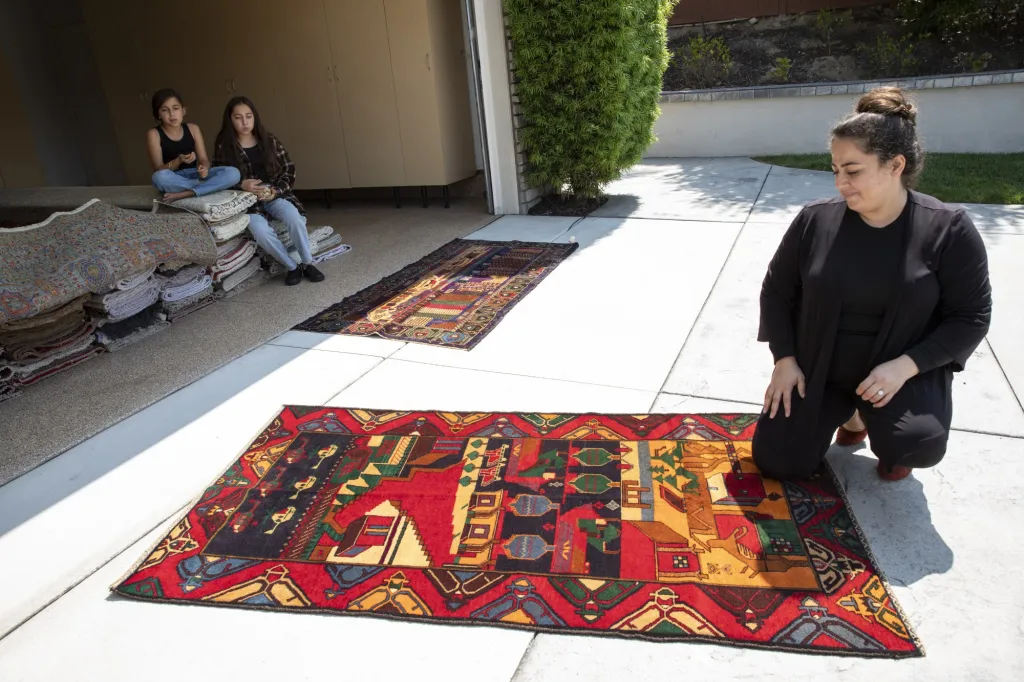Copyright San Diego Union-Tribune

I am the founder of The Rug Mine, a San Diego–based company that partners with Afghan artisans. My story — and theirs — begins long before I became a business owner. I grew up in Afghanistan during the Taliban’s first rule from 1996 to 2001, attending secret classes in basements because girls were banned from school. After the regime’s collapse and the U.S.-led invasion, my mother — a widow — became a teacher under the new Afghan government that emerged between 2001 and 2021. She raised six children, including five daughters, on a salary of about $50 a month, and some months she wasn’t paid at all. Yet she never stopped teaching. That strength defines Afghan womanhood: persistence without permission. When I came to America, I finally spread my wings. Today, I run a rug business that has invested more than $1 million to strengthen the economic position of Afghan artisans. Many of the women I work with were once engineers, prosecutors and software developers. Under Taliban rule, they can’t work in classrooms, courtrooms or clinics — so they weave rugs. Their hands literally hold together the fabric of a nation while their minds are locked out of its future. That isn’t culture. It’s waste. Rug weaving is not a small craft. It is one of Afghanistan’s largest private-sector employers. A World Bank brief estimates that the carpet industry employs over 1 million people — making it the second-largest employer after agriculture — and that women make up about 90% of the workforce in weaving and wool-spinning. UN Women adds that 1.2 million to 1.5 million Afghans rely on this sector for income. These women keep households fed and villages stable, but they do so unseen and unheard. Since 2021, Taliban decrees have erased women from public life — banning most girls from secondary and higher education and excluding women from many forms of paid work. UNICEF reports that more than 1.5 million girls are now barred from secondary school, the world’s largest ban on female education. When half a nation is prohibited from learning or earning, collapse is not a possibility — it’s a policy. The Taliban claim this is an “internal matter.” It’s not. Their ideology draws from a narrow South Asian current of Islam known as Deobandi, influential in parts of southeastern Afghanistan and Pakistan but far from representative of Afghanistan’s religious diversity or the wider Muslim world. Afghans are ethnically and culturally plural — Tajik, Hazara, Uzbek, Pashtun; Sunni and Shia — many rejecting gender exclusion. Calling repression “tradition” distorts both Islam and Afghanistan. Why should American women care? Because global rights rise or fall together. When any regime normalizes erasing women, it weakens the expectation that women belong in classrooms, workplaces and government. That expectation protects women everywhere, including here. If we accept regression there, we invite regression anywhere. There is also a practical stake. Economies that exclude women are unstable and unproductive. The U.N. Development Programme warns that restrictions on women’s employment could shrink Afghanistan’s gross domestic product by another 5%. The paradox I see daily is that the same women barred from public work keep the economy alive through their weaving. Among our artisans are former OB-GYNs, judges and software engineers now knotting rugs to feed families. With inclusion, this disciplined workforce could power an AI-enabled, digitally connected economy — teaching online, coding remotely, or designing sustainable textiles. Exclusion doesn’t preserve culture. It strangles innovation. A socially and economically free Afghanistan is not charity — it’s strategy. A nation that represses half its people breeds instability, refugee flows and extremism. A nation that educates and employs women builds markets, partnerships and peace. American women — entrepreneurs, engineers and advocates — have a vested interest in seeing that version of Afghanistan thrive. The United States and its allies should make women’s participation non-negotiable. Recognition of the Taliban, release of frozen assets or access to international finance must hinge on measurable inclusion: reopening schools, restoring the right to work and seating women in decision-making roles. Support Afghan women’s civil society directly. Fund remote education and digital literacy. Strengthen value chains so rug makers are paid fairly and connected to global buyers. These are not Western demands. They are the baseline of legitimacy in the modern world. My mother used to say that a rug lasts because every thread matters. Afghan women are those threads — strong, essential and inseparable from the fabric of the nation. When we abandon them, we tear the weave that holds us all.



